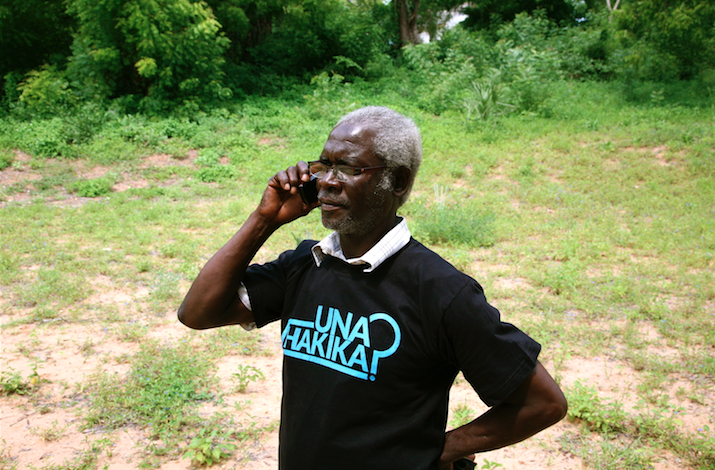Submitted by WA Contents
Buckminster Fuller Institute announces six finalists for the 2016 Fuller Challenge
United States Architecture News - Aug 24, 2016 - 15:02 14301 views

Six finalists have been announced by the Buckminster Fuller Institute for the 2016 Fuller Challenge. These six finalists have reached the final deliberation phase and are under consideration for selection to win the grand prize and an award of $100,000.
Now in its 9th cycle, the Fuller Challenge remains the only prize program specifically working to identify, catalyze, and celebrate projects that employ a whole systems approach to problem solving. Recognized as “socially responsible design’s highest award”, the Fuller Challenge puts forth a global call for solutions that address humanity's most pressing problems, welcoming submissions from all fields. In response to this open call, designers, architects, activists, entrepreneurs, artists, planners, scientists, and other comprehensive design practitioners submit entries that present integrated strategies deeply informed by an understanding of a whole systems context.
The Fuller Challenge continues to attract geographically diverse applicants working in communities and eco-systems around the world. This year, the majority of the entries hailed from outside of the United States.
The six proposals now under consideration for the 2016 grand prize have undergone a rigorous, multi-stage review process for adherence to the entry criteria by the Fuller Challenge Review Committee: a diverse group of advisors and experts led by a seasoned review team. It is a significant achievement to be selected as a finalist, and each of the projects highlighted below deserves recognition and support.
See the full six finalists projects and names below:

Cooperación Comunitaria. Image © Malina ltepec.
Cooperación Comunitaria is implementing a comprehensive model to radically improve the living conditions of marginalized populations in Mexico by working with communities to rebuild their homes—combining sound geological and engineering risk analysis with local indigenous wisdom. The project leaders engage with local people in the placement, design, and building of affordable, seismically sound, eco-friendly, culturally appropriate dwellings using local materials.
In addition to their efforts in the built environment, Cooperación Comunitaria works on education and training programs, sustainable economic development through agroforestry and agro-ecological projects, as well as the revival and revitalization of local indigenous culture, including its herbal and medical traditions. This exemplary, multi-faceted initiative combines science and local traditions in a comprehensive approach community resilience.

CommuniTree by Taking Root. Image courtesy of Buckminster Fuller Institute
CommuniTree is a simple but practical, well-executed approach to tackling three interlinked problems: deforestation, climate change, and poverty. The project ingeniously connects the dots around CO2 reduction and the generation of sustainable, local economies through a multi-faceted reforestation program.
The sale of carbon credits and sustainable wood products serve as financial mechanisms to support widespread reforestation by small, stakeholder farmers in areas vulnerable to the effects of climate change in Nicaragua. Because of the immense acreage of degraded agricultural lands around the world, this approach has the potential to be emulated widely and to contribute greatly to global carbon sequestration, as well as to habitat restoration and poverty alleviation.
Waterbank Schools by PITCHAfrica

Waterbank Schools by PITCHAfrica. Image courtesy of Buckminster Fuller Institute
PITCHAfrica identifies the need for water as a critical global problem, and transforms community dynamics by offering an elegantly simple solution. In a nested way, this design intervention is at once a social, educational, medical, environmental, and economic intervention.
The model takes a common architectural form and adds a trimtab: water catchment and filtration systems that transform the use of the structure, makes certain behaviors obsolete, and directly addresses the lack of a critical resource. Embedded in this new model is the understanding that community values are a top priority, from who builds the actual structure to its use for numerous activities.
Una Hakika by the Sentinel Project

Una Hakika by the Sentinel Project. Image courtesy of Buckminster Fuller Institute
The Sentinel Project has developed Una Hakika: a hybrid of communications technology, social insight, and beneficial use of social media. The project leverages both online and offline “informational architecture” to de-escalate conflict in regions where misinformation can lead to violence or genocide.
Interethnic and inter-communal violence is often dramatically exacerbated by inflammatory rumors. The Una Hakika pilot project quickly and effectively uses all available communication tools-including village councils, mobile phones, radio, print, and one-on-one conversation-to defuse conflict, with projects operating on the ground in both Kenya and Myanmar.

The Urban Death Project. Image courtesy of Buckminster Fuller Institute
The Urban Death Project (UDP) has designed a scalable, regenerative death care model based on the natural process of decomposition. In the Recomposition centers that the UDP envisions, bodies and forest waste are composted and transformed into soil. These centers are hybrid public park, funeral home, and memorial space, with the potential to be situated in repurposed urban infrastructure.
The Recomposition process eliminates the need for the millions of feet of hardwood, tons of concrete, gallons of toxic embalming fluids, and land required for traditional funerary practices (burial or cremation), while giving back to the earth with nutrient compost. The Urban Death Project’s solution to today’s toxic, $20 billion funeral industry presents a new model of death care that is both human- and nature-centric.
The Rainforest Solutions Project

The Rainforest Solutions Project. Image courtesy of Buckminster Fuller Institute
The Rainforest Solutions Project is a unique and innovative coalition consisting of Greenpeace, Sierra Club BC, and Stand (formerly ForestEthics) and a project of Tides Canada Initiative. For almost 2 decades, they have had a singular mission of “pioneering collaboration between deeply divergent interests (government, First Nations, environmentalists and logging companies) in the Great Bear Rainforest to develop a world-leading legal and process framework called Ecosystem Based Management supported by all the parties.”
The decades-long struggle culminated in one of the most extraordinary conservation, social justice, and indigenous rights victories in recent memory: a historic 250-year agreement between the parties to conserve 85% and sustainably manage the 15-million acre Great Bear Rainforest, the largest old growth temperate rainforest on the planet.
Top image: Fuller's Geodesic Dome, courtesy of Open Culture
